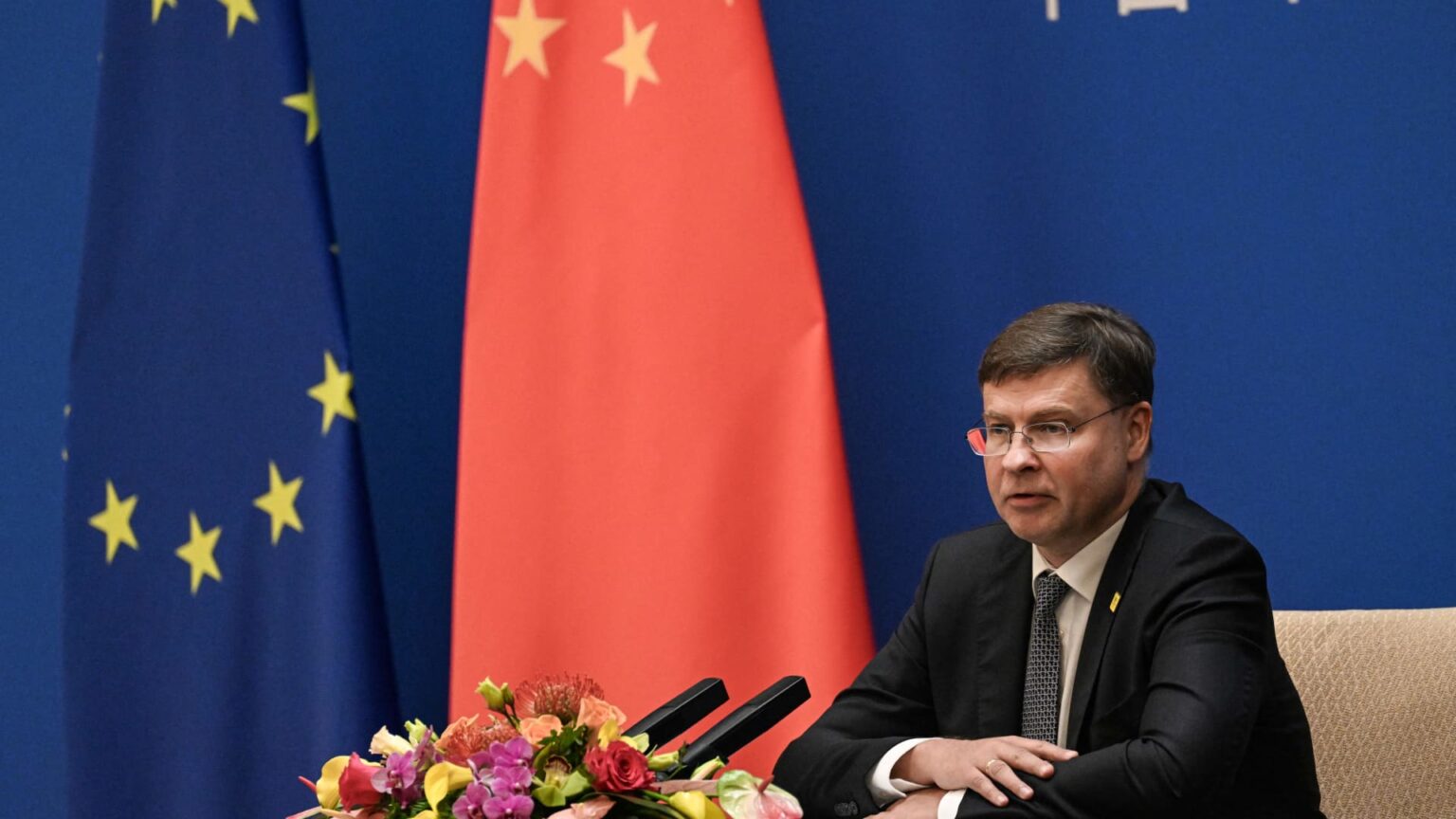Non-Chinese brands of electric cars, such as Tesla and BMW, could be examined as part of an ongoing subsidy investigation on China that the European Union kicked off earlier this month.
“There’s a lot of speculation, but at this stage the scope of this investigation is not decided yet. So we are doing the pre-initiation consultations with Chinese authorities and the scope is still to be determined, so what has been announced so far from the commission side is that, strictly speaking, it does not cover only Chinese brand electric vehicles,” Valdis Dombrovskis, executive vice president of the European Commission, told CNBC on Thursday.
The EU started a probe into subsidies that China has given to EV makers after gathering evidence of significant distortions in the European market, where vehicles produced in the bloc are facing cheaper steep competition from cheaper offerings of products made in China.
Authorities in Beijing have criticized what they describe as “protectionist” views from Brussels.
“Indeed [the probe] might cover also other electric vehicles, but exact scope, which producers are going to be covered by this, it is not decided at this stage,” Dombrovskis said on Thursday.
The EU investigation could stretch up to 13 months.
Dombrovskis traveled to China on Friday, where he held discussions with Chinese authorities in both Shanghai and Beijing. The EU investigation was brought up several times by Chinese officials during the four-day trip.
“This topic was extensively raised by the Chinese side during my visit, so I was reassuring Chinese authorities that this is a well-established process, [an] anti-subsidy investigation, and we are going to conduct it in strict compliance with applicable EU and WTO principles. It is [a] facts-based investigation, there will be ample opportunity to engage with Chinese authorities,” Dombrovskis said.
European officials believe that the share of China-made cars sold into Europe rose to 8% this year and could reach 15% by 2025.
Dombrovskis also acknowledged the difficult broader geopolitical context during his trip to China.
“We stand at a crossroads. We can choose a path towards mutually beneficial relations. One which is based on open, fair trade and investment, and working hand in hand on the great challenges of our time,” Dombrovskis said during a speech at Tsinghua University in Beijing on Monday.
“Or we can choose a path that slowly moves us apart. Where the shared benefits we enjoyed in recent decades weaken, and fade. And, as a result, where our people and economies face reduced opportunities,” he added.
This is some of the sharpest wording to come from European officials and follows data that showed the EU logging a trade deficit of almost 400 billion euros with China in 2022.
The European Union has been embracing a policy of de-risking from China, looking to cut certain dependencies.
“De-risk. This means minimising our strategic dependencies for a select number of strategic products. Acting in a proportionate and targeted way to maintain our open strategic autonomy,” Dombrovskis clarified in a speech in Shanghai.
Dombrovskis sought to use the trip to reassure his Chinese counterparts that the subsidy probe aims to create fairer trading practices and that the EU does not plan to cut ties with Beijing.
Read the full article here










